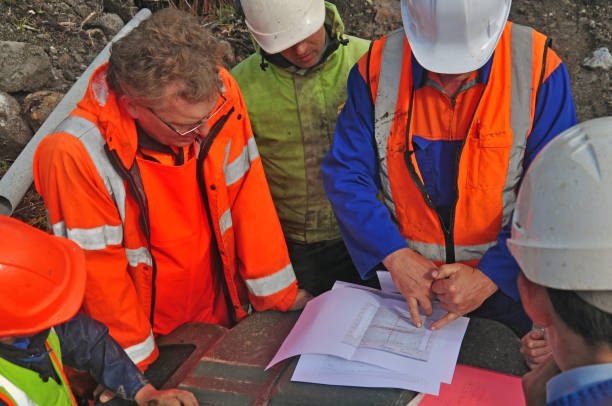
| Geophysicist Key Stats | |
|---|---|
| Education | 4+ Years |
| Job Outlook | 6% |
Geophysicists work in the scientific field and study the physical components of the Earth including its processes (how it functions), its structure and composition.
Individuals interested in taking the steps to become a Geophysicist will have a strong passion for science and how the earth functions.
Table of Contents
Education Requirements to Become a Geophysicist
Individuals who would like to become a Geophysicist will need to complete a minimum of a bachelor’s degree in order to secure an entry level position.
Individuals with a minimum of a master’s degree will have better job prospects.
Individuals who would like to perform research or teach at the postsecondary level will need to complete a PhD.
In addition, some states require individuals to acquire a license in order to become a Geophysicist.
Individuals beginning their college career who know they want to become a Geophysicist will need to complete their undergraduate degree in Geoscience.
This is the recommended educational track and is the most sought out degree by employers.
Similar majors include: computer science, engineering, mathematics, biology, chemistry or physics with coursework in geology are recommended educational degrees.
Individuals focusing on a degree in Geoscience can expect to take classes in the following areas:
- Structural Geology
- Petrology
- Mineralogy
- Physical science
- Mathematics
- Engineering
- Computer science
These classes and coursework are extremely important for individuals who want to become a Geophysicist.
Individuals not majoring in Geoscience will benefit in taking these additional classes in conjunction with a closely related field.
In addition, individuals will have better prospects if they gain experience while completing their bachelor’s degree.
Individuals can seek opportunities by applying for and completing a summer field camp in which they will gain the hands on experience needed to succeed as a Geophysicist.
Attaining experience using computers will also help individuals stand out to employers.
Experience with digital mapping, data analysis and computer modeling is also highly recommended.
Geophysicist Job Description
Geophysicists are scientific professionals who are experienced in studying the Earth and its composition.
This includes studying the earth’s magnetic field, internal makeup, processes seismic activity, gravitational fields, planetary movement, oceans and atmosphere.
Geophysicists will study the earth using a variety of interdisciplinary fields including physics, geology, chemistry and advanced mathematics in order to gather information.
Geophysicists will need to travel to the area of the earth to study its composition and gather information.
They will begin by planning and implementing field studies and then proceeding with collecting a variety of samples as well as conduct surveys of the area being examined.
During this process, they may use a variety of equipment to gather samples, sometimes using basic equipment such as a hammer.
They will then use the samples collected to analyze the information in a laboratory and conduct a variety of tests to determine composition.
After conducting laboratory testing, Geophysicists will use the information gathered to construct a written report of their finding and will share this information with the scientific world or the private company they work for.
Geophysicist Salary and Career Path
In 2012, the median salary for Geoscientists, which includes the Geophysicist career, was approximately $90,890 per year.
Exact wages will depend on the industry an individual works in.
For example, individuals who work in the oil and gas extraction field tend to make the highest wages at an annual median wage of approximately $137,500 per year while those who work for state governments earn less at approximately $62,020 per year.
The job outlook for Geoscientists looks promising and is expected to grow by 16 percent through the year 2022.
This rate is considered faster than average when compared to other professions.
This expected growth is attributed to several factors including the need for energy consumption, the responsible management of land and earthly resources and the increased interest in protecting the environment.
In addition, this growth will also be impacted by the advancements being made in technologies.
Job prospects will be best for those who have a master’s degree.
With a healthy job outlook, high wages and a busy environment, individuals interested in starting a career as a Geophysicist have plenty of incentives in joining this profession.
Individuals also have choices in the industry it works in including for a government agency, nonprofit or for the private sector.
![]() The below information is based on the 2023 BLS national averages.
The below information is based on the 2023 BLS national averages.
National Average Salary
$104,000Average Salary by State
| State | Avg. Annual Salary |
|---|---|
| Alabama | $80,410 |
| Alaska | $105,780 |
| Arizona | $85,230 |
| Arkansas | $76,670 |
| California | $108,330 |
| Colorado | $121,910 |
| Connecticut | $80,800 |
| Delaware | $80,790 |
| Florida | $99,250 |
| Georgia | $77,380 |
| Hawaii | $104,030 |
| Idaho | $85,830 |
| Illinois | $94,670 |
| Indiana | $71,620 |
| Iowa | $63,780 |
| Kansas | $88,410 |
| Kentucky | $71,040 |
| Louisiana | $98,030 |
| Maine | $83,610 |
| Maryland | $103,700 |
| Massachusetts | $99,630 |
| Michigan | $79,510 |
| Minnesota | $77,650 |
| Mississippi | $101,680 |
| Missouri | $84,190 |
| Montana | $83,710 |
| Nebraska | $81,850 |
| Nevada | $85,950 |
| New Hampshire | $100,100 |
| New Jersey | $80,350 |
| New Mexico | $75,900 |
| New York | $95,770 |
| North Carolina | $87,980 |
| North Dakota | $93,680 |
| Ohio | $80,210 |
| Oklahoma | $108,870 |
| Oregon | $99,440 |
| Pennsylvania | $75,170 |
| Rhode Island | $105,860 |
| South Carolina | $79,370 |
| South Dakota | $72,010 |
| Tennessee | $83,000 |
| Texas | $139,770 |
| Utah | $106,380 |
| Virginia | $87,860 |
| Washington | $103,090 |
| West Virginia | $92,810 |
| Wisconsin | $74,380 |
| Wyoming | $87,650 |
The top earning state in the field is Texas, where the average salary is $139,770.
These are the top 5 highest-paying states in the field:
* Employment conditions in your area may vary.
Frequently Asked Questions
What does a geophysicist do?
A geophysicist is a specialized scientist who studies the physical properties of the Earth.
A lot of geophysicists work for environmental protection groups, governmental geological surveys, and for private companies in the oil and engineering industries.
Some scientists choose to specialize in certain areas; for example, seismic activity, planetary movement, the Earth’s magnetic and gravitational fields, and so on.
The typical duties of a geophysicist will certainly depend on the chosen specialization; those might include help in locating natural resources, assisting with environmental protection and preservation, developing methods and techniques for monitoring various processes, extensive field research, etc.
A geophysicist can be required to do field or lab work.
How much do geophysicists make?
On average, a geophysicist can make a little more than $91.000 per year in the United States.
In case you decide to follow this career path, you can expect to earn anywhere between $49.000 and $154.000 annually.
The salary would certainly depend on a variety of factors – your education and experience level, the employer, the location and so on.
The geophysicists that work in Oklahoma, Virginia, and Texas, for example, have the highest average salaries.
An entry-level geophysicist can earn $16 per hour, while a specialist with plenty of experience will make $50 and more.
How much does it cost to become a geophysicist?
You would certainly need to obtain at least a bachelor’s degree in a natural science, in order to become a geophysicist.
A year in a university can cost you anywhere between $8.000 and $45.000 (and more); the cost depends on a variety of factors (the books, supplies, and accommodation expenses are not included).
However, the majority of employers would expect you to have a master’s degree (between $30.000 and $120.000) or a doctorate degree (around $30.000 per year).
A Ph.D. is a must if you want to teach geophysics or conduct independent research.
What is the demand for geophysicists?
Between 2018 and 2028, the geoscientist (including geophysicists) job market is expected to grow by 6%, according to the Bureau of Labor Statistics.
That is pretty much as fast as the national average for all occupations in the United States.
The majority of geophysicists are employed in the gas and oil extraction industry and the architectural and engineering industry.
Job opportunities will be best for those candidates who possess a master’s degree or a Ph.D.
How long does it take to become a geophysicist?
It will take you 4 years to obtain a bachelor’s degree, 2-3 years to acquire a master’s degree and anywhere between 4 and 6 years to earn a Ph.D.
Computer and GPS skills are increasingly important in the field, so you might want to undergo some courses.
The majority of employers prefer the candidate to have some prior experience with fieldwork; seek internship opportunities while still in college.
The sooner you figure out what subfield of geophysics you are most interested in, the better.













